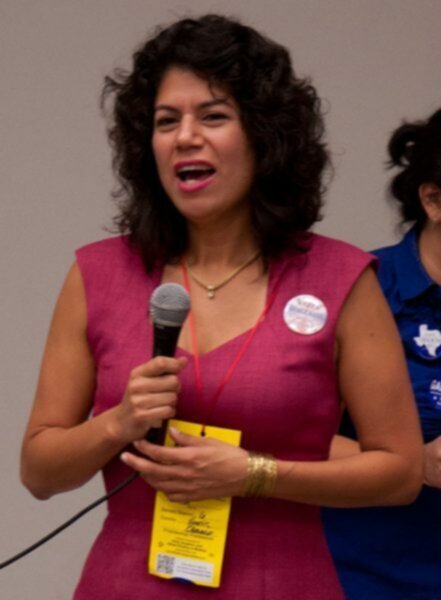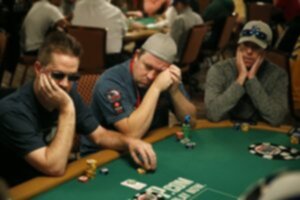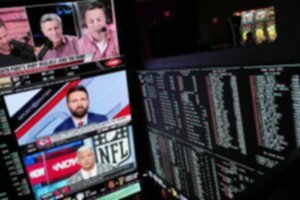A bevy of bills were recently introduced in the Texas legislature that moves the state closer to expanded gambling. While legalized resort casinos and sports betting apps may remain a long way off, the bills have powerful support. Both the Las Vegas Sands Corp and the Texas Sports Betting Alliance will lobby for the current legislation. Passage could result in full-service casinos in Houston and betting windows at the Cowboys’ stadium in Arlington.
How Would Texas Expanded Gambling Work?
In Texas, expanded gambling options would be a welcome addition. The Lone Star state is possibly the largest untapped gaming market remaining in the United State. Currently, all betting is illegal under the state constitution. Exceptions are made for horse and dog racing, the state lottery, and charitable activities. Three small tribal casinos are constantly fighting state lawsuits attempting them to limit their offerings.

A bipartisan group of Texas legislators have joined together to hopefully amend the constitution. Representative John Kuempel (R-Seguin) filed Joint Resolution 133 filed in the House. Meanwhile, Senator Carol Alvarado (D-Houston) introduced Joint Resolution 49 in the Senate. Combined, the bills would place a constitutional amendment on the November 2021 ballot. However, each chamber requires two-thirds support to authorize an amendment.
What Expanded Gambling Options Could Come To Texas?
The proposed constitutional amendment would then require majority passage at the ballot box. If approved, it would create a Texas Gaming Commission to oversee casinos and levy taxes. For land-based casinos, the following licenses would be sold:
- Four Class I destination resort licenses. One mega-casino for each of the state’s four largest metro areas: Dallas-Fort Worth, Houston, San Antonio, and Austin.
- Three Class II limited casino gaming options. These would be reserved for horse-racing tracks in Dallas-Fort Worth, Houston, and San Antonio.
- Finally, two Class III limited casino gaming authorizations. One for each of the state’s two dog-racing tracks in Corpus Christi and Harlingen.
With the backing of Las Vegas Sands, the destination resorts contemplated would be world-class. To that end, the bills contemplate the casinos in Dallas and Houston requiring a minimum private investment of $2 billion. Such figures would automatically limit the competition Sands would face for whichever licenses it desires.
Texas Sports Betting Expansion Is Also on the Table
Beyond the new casino licenses, passage of the contemplated amendment would bring legalized sports betting to Texas. The newly formed Texas Gaming Commission would be authorized to regulate retail and online sports wagering. While the Sports Betting Alliance backs similar proposals for Texas expanded gambling, those bills are limited to online wagering. The new joint resolutions could provide retail sportsbook licenses. This may result in additional support from the professional teams and their powerful owners, like Jerry Jones and Mark Cuban.
By the end of 2023, Texans may be able to get a hot dog and place a halftime bet during a Mavericks game.
Gaming Bill Faces Opposition in Texas
Texas remains a largely untapped gambling market for a reason. Both its citizens and politicians have historically opposed non-pari mutual gaming. However, recent polling showed a large plurality of citizens support allowing full casino gambling. When provided a choice between six options, 41% selected opening the state to casinos. The next largest group was the 17% who would like the state to keep its current laws.
Powerful politicians still oppose any Texas expanded gambling. While Governor Greg Abbott has not dismissed the bills, Lt. Governor Dan Patrick is vehemently against the legislation. It is unclear how decreased state revenues from the pandemic will impact legislators’ positions. New casinos and sportsbooks could bring fresh taxes and licensing fees. However, the need is blunted by the multiple years it would take to pass an amendment and implementation bill, then build casinos.
Expanded Gambling Would Boost Texas’ Budget
Though the need for a budget boost is immediate, lobbyists are focusing on long-term revenues. The joint resolutions would place a 25% tax on slots and a 10% tax on table games. The money raised would be in addition to the initial and continuing licensing fees, which could be high. If a company is willing to plunk down billions to build, Texas could charge $50 – $100 million for Class I licenses. Additionally, there would be revenue from the licenses and taxes on sports betting.
Going forward, debate will carry on in the statehouse. Politicians are in session only until May 31, so movement will be quick. The fact legislators do not need to legalize casinos and sports betting themselves may be beneficial. Putting important questions directly to the voters is a time-honored tradition. More legislators may be inclined to support letting the people decide.





